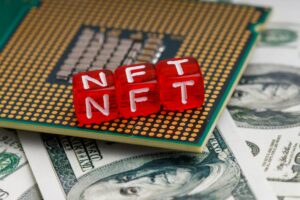Introduction to Navigating the Metaverse: A Beginner’s Guide to the Next Digital Frontier

In the ever-evolving landscape of technology, the term “metaverse” has become a buzzword, capturing the collective imagination and curiosity of individuals across the globe. But what exactly is the metaverse, and why is it generating such widespread interest? This essay aims to provide a comprehensive and beginner-friendly exploration of the metaverse, demystifying its concept, delving into its components, and discussing its potential impact on the way we experience the digital world.
I. Unveiling the Metaverse: Beyond the Buzz
A. Defining the Metaverse
The metaverse is a term coined to describe a collective virtual shared space that combines aspects of augmented reality (AR), virtual reality (VR), and the internet. Unlike the traditional internet, the metaverse offers an immersive and interconnected digital environment where users can interact with each other and digital content in real-time.
B. The Evolution of the Metaverse
The concept of the metaverse has its roots in science fiction, notably Neal Stephenson’s 1992 novel “Snow Crash.” Over the years, technological advancements have transformed this speculative idea into a tangible and evolving reality. The metaverse represents a paradigm shift from static online experiences to dynamic and immersive digital realms.
II. Building Blocks of the Metaverse
A. Virtual Reality (VR) and Augmented Reality (AR)
1. Virtual Reality (VR)
VR immerses users in entirely digital environments, often through the use of headsets and controllers. It provides a sense of presence in virtual spaces, allowing users to interact with a computer-generated world.
2. Augmented Reality (AR)
AR overlays digital content onto the real world, enhancing the user’s perception of their surroundings. This blending of digital and physical elements contributes to the seamless integration of the metaverse into our daily lives.
B. Blockchain Technology
Blockchain, the technology underlying cryptocurrencies like Bitcoin, plays a crucial role in the metaverse. It provides a secure and decentralized framework for managing digital assets within virtual spaces. Non-fungible tokens (NFTs), a type of digital asset representing ownership of unique items, are often built on blockchain and are integral to the metaverse. If you are finding the metaverse potential, check out this list of the best metaverse projects on the market.
C. Virtual Currencies
Virtual currencies, often based on blockchain technology, serve as the economic backbone of the metaverse. These currencies enable transactions, purchases, and economic activities within virtual environments, creating a digital economy.
D. Decentralized Platforms
Decentralized platforms, built on blockchain, contribute to the open and interoperable nature of the metaverse. These platforms enable users to create, trade, and interact within a decentralized framework, fostering user-driven content and experiences.
III. Navigating the Metaverse: Use Cases and Applications
A. Social Interaction
The metaverse redefines social interaction, offering users the ability to communicate, collaborate, and socialize in virtual spaces. Avatars, digital representations of users, allow for a personalized and immersive social experience.
B. Virtual Commerce
E-commerce within the metaverse introduces a new dimension to buying and selling. Users can trade digital assets, virtual real estate, and even attend virtual marketplaces, contributing to the emergence of a virtual economy.
C. Gaming and Entertainment
Gaming has been a driving force behind the development of the metaverse. Virtual worlds offer immersive gaming experiences, with users interacting not only with the game but also with each other, blurring the lines between gaming and socializing.
D. Education and Training
The metaverse presents new opportunities for education and training. Virtual classrooms, interactive simulations, and immersive learning environments create engaging educational experiences, transcending the limitations of traditional methods.
E. Work and Collaboration
Remote work and collaboration take on a new dimension within the metaverse. Virtual offices, meetings, and collaborative spaces offer a more immersive and dynamic approach to remote work, potentially revolutionizing how teams interact and collaborate.
IV. Platforms Shaping the Metaverse
A. Facebook’s Horizon Workrooms
Facebook’s Horizon Workrooms is an example of a platform that blends VR and AR for collaborative work. Users can create digital avatars, meet in virtual spaces, and collaborate on projects, introducing a new way of remote work and communication.
B. Decentraland
Decentraland is a decentralized virtual world built on blockchain, allowing users to buy, sell, and develop virtual real estate. It exemplifies the open and user-driven nature of the metaverse, providing a platform for creativity and interaction.
C. Roblox
Roblox, initially a gaming platform, has evolved into a metaverse-like space where users can create, play games, socialize, and even develop their virtual economies through the platform’s virtual currency, Robux.
D. Fortnite
Fortnite, a widely played online game, has embraced metaverse-like features by hosting virtual concerts, movie nights, and in-game events that extend beyond traditional gaming experiences.
V. Challenges and Considerations
A. Technical Challenges
1. Scalability
Ensuring the scalability of metaverse platforms becomes crucial as user numbers grow, requiring robust technological infrastructure to maintain performance and user experience.
2. Interoperability
Achieving seamless interoperability between different virtual spaces and platforms presents a complex challenge that requires standardized protocols and technologies.
B. Social and Ethical Considerations
1. Digital Divide
The metaverse could potentially exacerbate existing inequalities, creating a digital divide based on access to technology, internet connectivity, and economic resources.
2. Privacy and Security
Protecting user privacy and security within the metaverse raises significant concerns. Striking a balance between immersive experiences and safeguarding user data is a delicate challenge.
C. Economic and Regulatory Challenges
1. Virtual Economy Regulation
The emergence of a virtual economy within the metaverse raises questions about regulation, taxation, and legal frameworks for virtual assets and transactions.
2. Ownership and Intellectual Property
Determining ownership and intellectual property rights within the metaverse presents complex legal challenges, especially concerning user-generated content and digital assets.
VI. The Future of the Metaverse
A. Evolving Technological Landscape
The metaverse continues to be shaped by advancements in technology. Innovations in AI, AR, VR, and blockchain will contribute to a more sophisticated and seamless metaverse experience.
B. Cultural and Social Impact
The metaverse has the potential to reshape culture and society. It could redefine how we work, learn, socialize, and express ourselves, fostering a new era of digital culture.
C. Economic Opportunities
As the metaverse evolves, it opens up new economic opportunities. From virtual commerce and decentralized finance to digital entrepreneurship, the metaverse has the potential to create novel economic landscapes.
D. Continued Collaboration and Innovation
The development of the metaverse requires collaboration across industries and continuous innovation. As companies, developers, and users contribute to its growth, the metaverse will continue to expand and diversify.
VII. Conclusion: Embarking on the Metaverse Journey
As we conclude this exploration of the metaverse, it is evident that this digital frontier holds vast potential, transforming the way we interact with the digital world. For beginners navigating the metaverse, understanding its definition, building blocks, use cases, platforms, challenges, and future trends is an essential foundation.
The metaverse is not just a technological concept; it represents a cultural and societal shift. It invites exploration, collaboration, and innovation, offering a glimpse into a future where the digital and physical realms seamlessly coexist. As we embark on this journey into the metaverse, the possibilities are as limitless as the virtual landscapes it encompasses, promising an exciting and transformative era in the realm of digital experiences.
Source link
#Navigating #Metaverse #Beginners #Introduction #Digital #Frontier





